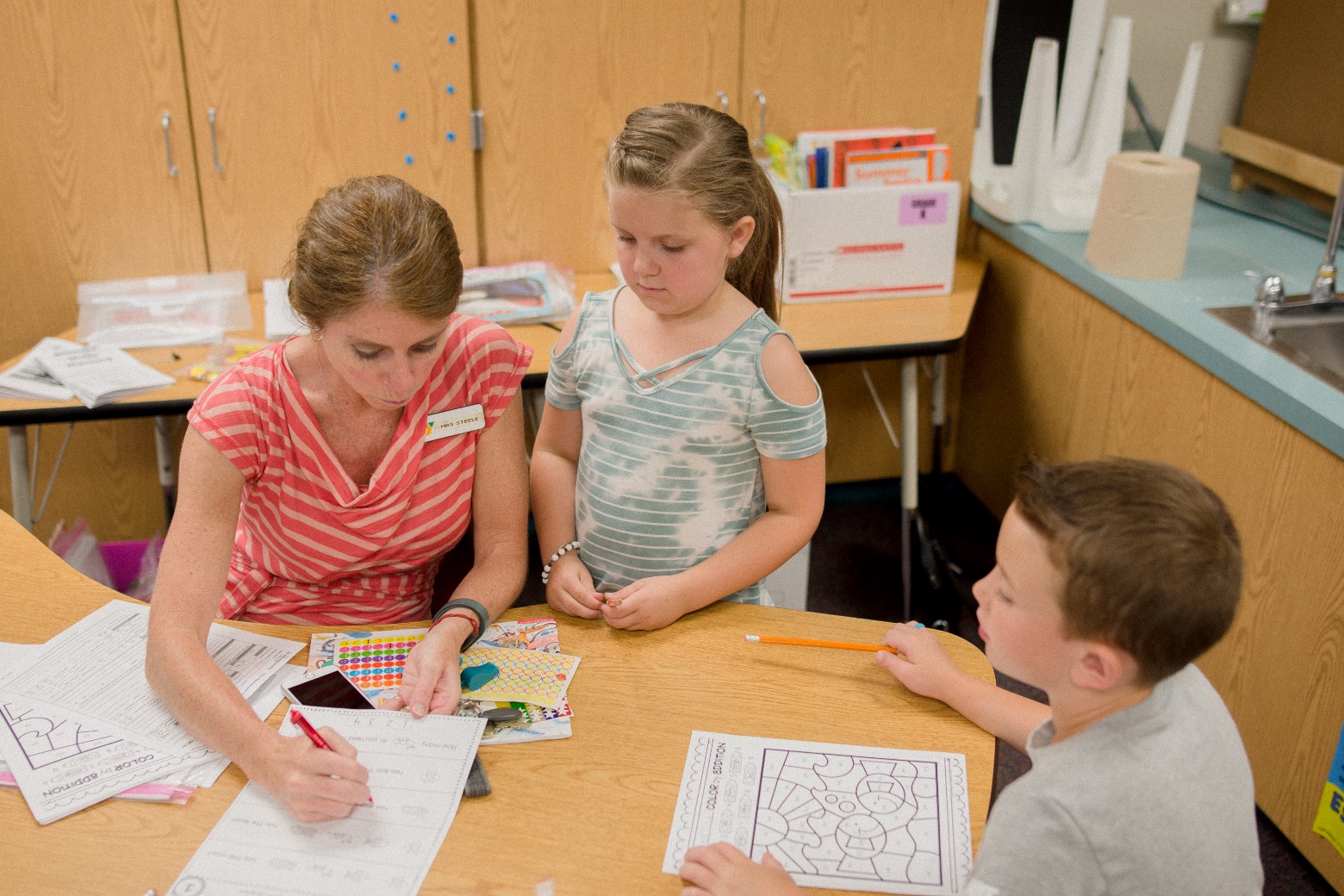Meeting the Complex Summer Learning Needs of a Rural Community

Wabash is a small, tight-knit community, with a population of just over 10,000, located in the north central part of Indiana. While rich in local pride and natural beauty, it is a struggling community, with over 13-percent of its residents living below the poverty level, according to the U.S. Census Bureau.
Prior to the Power Scholars Academy (PSA) programming in rural Wabash, Indiana, Stacey Fry, Director of Youth Development at Wabash County YMCA, recalls driving by homes over the summer and seeing children sitting idly on front steps, or playing outdoors alone. “That drive home from work felt sad,” she reminisces. “We saw a need for summer learning. Our local districts weren’t able to provide that, but the need still existed.”
Now, every summer, many of those same children can be found immersed in local schools, gaining key academic and social-emotional skills. The summer learning program combines fun, dynamic literacy and math instruction with hands-on enrichment, making for a holistic experience that prepares scholars for school-year success. “They are learning in a classroom setting and it feels good,” said Fry. “When we all work together, the children benefit.”
In 2015, in their quest to address the achievement gap in their local community, the Wabash County YMCA in partnership with the Y USA Achievement Gap programming connected with BellXcel. The program has earned measurable scholar and educator outcomes ever since.
“That’s why we still have a partnership with the schools, because we provide a good return on investment. They are able to show their students are making strides in the summer,” Fry says.
Professional Development Equips Educators
Teacher empowerment via BellXcel’s professional development is at the core of the PSA program. Prior to the summer program, educators receive in-person and virtual training in program administration, curriculum & instruction, culture & climate, evaluation & assessment, family engagement, and scholar management. Professional development prepares partners to implement a high-quality summer program that meets the needs of their learning community. “One good benefit of being a BellXcel partner is the trust. If we have challenges, there is a whole team of people who are ready to help us,” says Fry.
Academic teachers in Wabash are all local certified school teachers. This ensures that instruction is of the highest caliber, and aligned with school year success. “We are able through BellXcel to offer so much more professional development in a concentrated way, than what teachers receive over the school year.”
One of Fry’s poignant stories that captures the program’s power involves a PSA academic instructor who has been a local educator for over 20 years. The educator expressed that she was drawn to PSA due to its intentional instruction, and small group environments. The PSA program in Wabash maintains a ratio of 1 academic teacher to 12 scholars.
“She said to me, ‘I get to see these kids I saw before in a whole different light. I pour into them academically, but have the opportunity to see their creative side and that’s lost in the school-year classroom,” Fry says. “She sees these glimpses and that touched me. She gets revitalized with the same kids she spends time with during the school year.”
Strengthening Schools
The PSA has also helped connect the local Y with local schools over the summer and combine resources to offer much more than the usual summer camp type activities such as sports and recreation. She also credits the Y’s strong relationship with the State of Indiana’s Department of Education and local school districts to address the achievement gap.
“I have the privilege of deepening those relationships, and working closely with the school principals, to ensure they are seeing the outcomes and are connected to our mission,” she says. “Schools are working as hard as they can. They don’t have significant resources to move that needle. So, it’s nice to fill in that gap and take that off their plate so they can focus on what they do best.”
Safe Environment to Thrive
PSA is not only addressing the educational gap. Educators have also seen some secondary benefits, such as keeping children occupied, safe, and healthy. Often, Fry says, parents leave their children at home with older siblings, a less than ideal situation. Summer scholars receive free breakfast, snack and lunch and the program is provided at no cost to participating families.
“For most of their summer, we are able to nourish them and enrich them in a safe environment,” Fry says. “We are in a childcare desert. If we can lower the stresses faced by parents, it positively impacts the scholars.”

